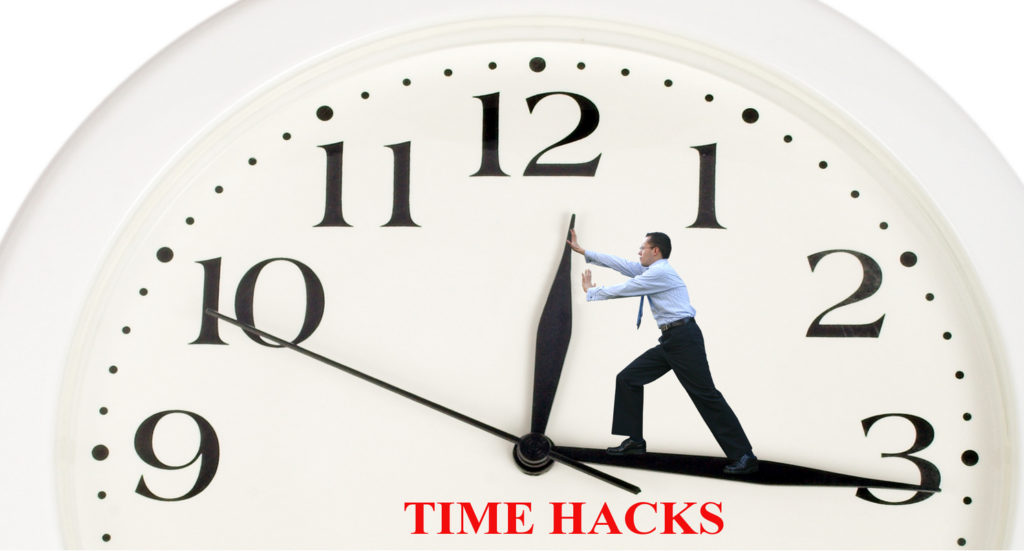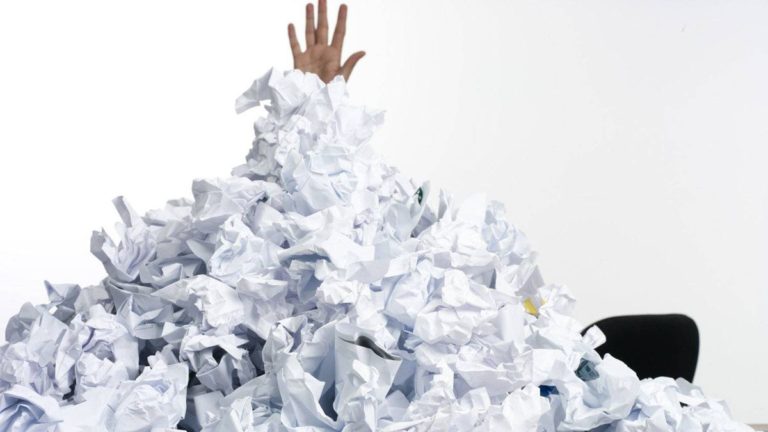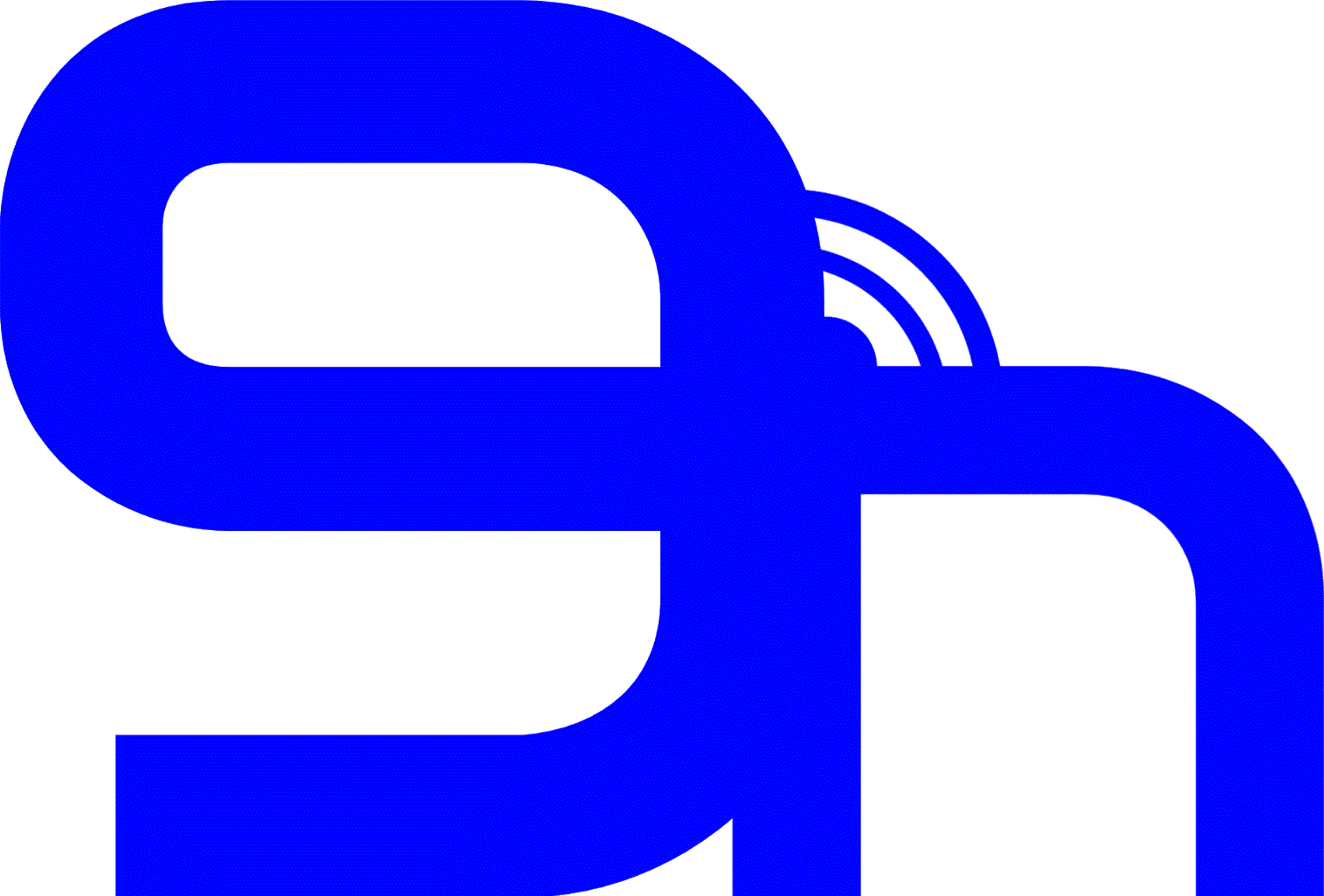
Get More Done by Doing Less
If you clicked on this article I am betting this isn’t the first time you read a post that could hopefully save you time in the never-ending attempt to juggle various personal and professional roles. There are some great resources available to give you a foundation, from David Allen’s “Getting Stuff Done” productivity methodology to Brian Tracy’s “Eat That Frog” procrastination avoidance approach. However, I’ve found these three tips can impact our day to day stress levels the most:
1. Stop Organizing

The usual mentality goes something like this: “If you don’t have everything lined up in an orderly fashion, you will lose far more time than you save by trying to find things when needed.” People want to add folders, bins and buckets to ensure all their like-possessions are together. It gives a sense of relief and eliminates the stress of losing something critical.
Online, and elsewhere in the digital world, many of us try to replicate this process. We create dozens of folders in our Outlook or Gmail by specific subject. Then every day, week, and month, we take precious time to drag and drop our mail into each folder thinking it will benefit us in the future. However, with the constant flood of files, emails and information coming at us 24 / 7 / 365, the effort to organize eats up our precious time.
Fortunately, we can leverage new tools today that eliminate the need to sort and file. Almost every program today is equipped with shortcuts and search interfaces that will allow you to find information quickly. Outlook, Gmail, Windows applications and most mobile programs have shortcuts, search techniques and functionality to keep data accessible when needed. Spend your organizing time to learn how to sort, search and filter. You’ll save exponentially more hours that would have been used organizing.
TIP: For emails that are the most critical, create a set of tags or categories, that can be assigned directly to the message. Then you can easily search for the tag rather than digging through multiple folders to find where you placed it.
2. Stop Listening

In the time it takes to write this article, my phone used to ping me with 50 to 60 push notifications. Each time I would stop writing, lose focus, and pull down on the notification bar to check who, or what, it was. After realizing it was nothing important, it then took 15 to 30 seconds to review where I was and start typing again. These mini distractions added up quickly. Tasks that should have taken 30 minutes often took hours or even days.
To truly get back time, kill your notifications – not just one or two apps, but ALL APPLICATIONS. You will discover in less than a couple days that you don’t miss the messages and pop-ups. Why? Well there are two main reasons:
1. You aren’t as important as you think – You may believe that an urgent TPS report could appear in your inbox, requiring immediate turnaround for the survival of the company, but this is rarely the case.
- 98% of the time “urgent” isn’t actually urgent. While every message sender may want it done ASAP, you need to control your calendar and your life. Be your own CEO!
- For the other two percent of the time, you can mitigate issues with advance notice on how to be contacted on important matters. Some people add a line to all emails that explains how they can be reached via cell phone for truly time-sensitive tasks or emergencies.
2. Most messages, outside direct emails or texts, never existed for your benefit anyway. They are really for third parties to grab your attention and send a commercial to you disguised as information, or worse.
- Example: How many “CNN Breaking News” notifications are actually true news that are worth interrupting your day? I’m betting about 1% of the hundreds sent each month. You can easily catch-up at day’s or week’s end.
Ironically, push notifications were created so that we would not have to access our phone all the time. They were meant to let us live our life and not worry about the occasional relevant message. Now, every company and marketing firm have used this communication avenue as a Trojan horse to get inside our phones, and heads, for their benefits.
3. Stop Multitasking

Source: Huffington Post
This directly ties in to number two above. Research shows multitasking isn’t really doing multiple things at once, but instead the art of going back and forth between two (or three) tasks quickly. Your brain is switching and will never be able to be focused as well as if it was dedicated. According to a study in 2013, the more people multitask by using multiple media at once, the more they lack the actual ability to multitask. Plus, their perceived multitasking ability “is significantly inflated.”
Just pick one thing to target for a set timeframe – start with 10 minutes, with no Internet, phone or potential distraction in the room. As you see the benefits, increase your focus periods to 20 and then 30 minutes. Within a few weeks you’ll see the benefits of this approach and the value will be self-evident.
There are a lot of great ways to gain extra time, but these three may get you the best bang for the buck. I’m interested if many of you have tried, and succeeded, with other techniques. What are your best time hacks?
About the author: David Apollon is the managing director at 9Nation Inc., a consulting firm founded ten years ago to help Fortune 500 companies as well as growth-stage firms handle special IT and strategic projects including ERP, CRM and cloud-based implementations. David has led over 75 corporate programs, projects and PMO initiatives in the past 20 years.
